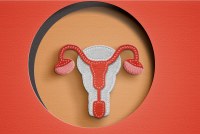Latest KFF Health News Stories
Heat Rules for California Workers Would Also Help Keep Schoolchildren Cool
Proposed state standards to protect indoor workers from extreme heat would extend to schools. The rules come as climate change is bringing more frequent and intense heat waves, causing schools nationwide to cancel instruction.
Investigan si los armadillos son responsables de la propagación de la lepra en Florida
La región central de Florida es un foco crítico de esta antigua enfermedad, lo que desconcierta a los científicos que están analizando el fenómeno.
Presidential Election Could Decide Fate of Extra Obamacare Subsidies
Most states that saw enrollment in the Obamacare marketplace double from 2020 to 2024 are in the South. But the enhanced federal subsidies that attracted people with $0 premiums and low out-of-pocket costs will expire next year.
The South Can Be a Dangerous Place To Be Black and Pregnant
In much of the developed world, dying while pregnant or delivering a child is practically unknown. In Australia, for example, there were just 3 maternal deaths for every 100,000 live births in 2021. But that’s not the case in the American South. And especially not for Black women. In South Carolina, Black women were more […]
The Case of the Armadillo: Is It Spreading Leprosy in Florida?
A single Central Florida county reported 13% of all U.S. leprosy cases in 2020. Researchers have teamed up to investigate whether armadillos are passing the bacteria that cause the disease to humans — which is especially concerning as the animals expand their range farther north.
Exposed to Agent Orange at US Bases, Veterans Face Cancer Without VA Compensation
The Department of Veterans Affairs has long given vets who served in Vietnam disability compensation for illness connected to Agent Orange harm. But those exposed at U.S. bases are still waiting for the same benefits.
Congress Likely to Kick the Can on Covid-Era Telehealth Policies
With an end-of-year deadline and a presidential election approaching, payment rules that fueled rapid expansion of telehealth in the United States face a last-minute congressional decision.
City-Country Mortality Gap Widens Amid Persistent Holes in Rural Health Care Access
People in their prime working years living in rural America are 43% more likely to die of natural causes, like diseases, than their urban counterparts, a disparity that grew rapidly in recent decades, according to a new federal report.
Movimientos en contra de las vacunas perjudican a los niños más vulnerables
La desinformación, junto con un movimiento por el derecho de los padres que aleja la toma de decisiones de la salud pública, ha contribuido a las tasas de vacunación infantil más bajas en una década.
How the Anti-Vaccine Movement Pits Parental Rights Against Public Health
Framed in the rhetoric of choice, Tennessee’s new law governing childhood vaccinations is among more than a dozen recently passed or pending nationwide that set parental freedom against community and children’s health.
Pregnancy Care Was Always Lacking in Jails. It Could Get Worse.
A lack of oversight and standards for pregnancy care in jails is becoming more problematic as the number of incarcerated women rises and abortion restrictions put medical care further out of reach.
Southern Lawmakers Rethink Long-Standing Opposition to Medicaid Expansion
While many Republican state lawmakers remain firmly against Medicaid expansion, some key leaders in holdout states are showing a willingness to reconsider. Public opinion, financial incentives, and widening health care needs make resistance harder.
Early Detection May Help Kentucky Tamp Down Its Lung Cancer Crisis
After a decade of work, a Kentucky program launched to diagnose lung cancer earlier is beginning to change the prognosis for residents by catching tumors when they’re more treatable.
How Fringe Anti-Science Views Infiltrated Mainstream Politics — And What It Means in 2024
Opposition to vaccines and other public health measures backed by science has become politically charged. That makes dangerous misinformation much harder to fight.
Federal Program to Save Rural Hospitals Feels ‘Growing Pains’
Fewer than two dozen rural hospitals were converted into Rural Emergency Hospitals in the program’s first year. Now, advocates and lawmakers say tweaks to the law are necessary to lure more takers and keep health care in rural communities.
Being Black and Pregnant in the Deep South Can Be a Dangerous Combination
Being Black has always been dangerous for pregnant women and infants in the South. And researchers say things are continuing to move in the wrong direction.
States Reconsider Religious Exemptions for Vaccinations in Child Care
Providers and health care advocates warn a proposed rule change in Montana would jeopardize immunity levels in child care centers and communities. Efforts to change vaccination exemption rules are underway in other states, too.
PrEP, a Key HIV Prevention Tool, Isn’t Reaching Black Women
New HIV infections occur disproportionately among Black women, but exclusionary marketing, fewer treatment options, and provider wariness have limited uptake of preexposure prophylaxis, or PrEP, drugs, which reduce the risk of contracting the virus.
Facing Criticism, Feds Award First Maternal Health Grant to a Predominantly Black Rural Area
Mississippi has the highest rate of maternal mortality in the U.S. Now, it also has a federal grant to help in rural areas. The award could signal more flexibility from federal officials.
Mississippi’s Cervical Cancer Deaths Indicate Broader Health Care Problems
Mississippi has among the highest cervical cancer mortality rates in the U.S. When low-income women can’t afford regular preventive care, much less gynecological visits, this highly preventable and treatable cancer becomes a killer.
























